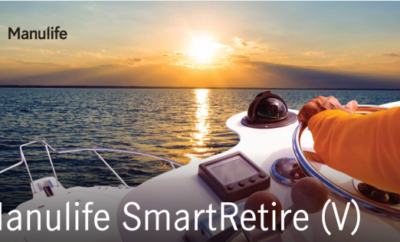
Insights + interviews
Being Practical About Retirement Planning
Retirement is on your mind. It has been on your mind since you were in your 20’s and just starting out in your job.
When you were 30 and had a career, house and family to handle. And now when you are in your 40’s, it’s about time to be realistic and step up to both the dream of retirement and the reality of preparing for it.
Many of us aim for retirement. In fact, according to the Nielsen Global Survey about Aging, half of all Singaporeans wish to retire before the official retirement age. That sets us up for a long ride into the sunset where, based on current life expectancy, we are looking at nearly another 30 – 40 years where we are enjoying retirement but with no salary.
Retirement is really one of the most important life events that people have to go through and this means we have to be practical about retirement.
We spoke with Winson Yap, Chief Distribution Officer of Tokio Marine Life Insurance Singapore (TMLS) about retirement – the thinking for this life stage, the tools and the top three things to consider.
A key question for anyone planning retirement usually begins with the “the “how”. Winson suggests that when we begin to plan, there needs to be independent, unbiased research done. This can be internet-based research and in Singapore, a good place to start is the CPF website. After understanding the basics and key terminology, approach a credible and well qualified financial advisor that can put the information into context and work with you on a customised approach towards retirement.
How early should you start planning? Well, it’s never too early was the impression gathered but typically, when you begin your working life at 25 years old seemed to be a good starting age. That early in the game, you benefit the most because of the “compounding” effect and at the beginning, it’s about getting used to the habit of saving.
For those who are slightly older, the key message is that it’s not too late to begin.
Some challenges for pre-retirees include not being prepared for retirement due to lack of preparation as well as procrastination. Pre-retirees will experience a transition period from enjoying full income to a situation where they only have retirement income. A good tip would be to start thinking early about what you want to do during retirement. That can include travelling or picking up a new hobby. These activities should be factored into retirement planning as they can eat into retirement funds.
Procrastination is another challenge according to Winson. Based on a TMLS study, Singaporeans do not think enough about retirement and are not saving adequately. To push home his point, he used a simple illustration. It is simpler for a 25 year old to save 1.5million for retirement compared to a 45 year old due to time, the ability to set a certain amount aside consistently and compounding effects.
Stated simply, starting earlier is a big advantage as time is on your side.
What are some of the tools available? Winson shares that diversification is key. A savvy individual would be looking at many different types of financial products and putting together a basket of goods that helps with mitigating risk and increasing gains.
Insurance can be used to provide a more predictable and stable approach that can hedge against major illness and other large ticket (often unexpected) events.
There are generally two types of insurance retirement product categories available: “Whole of life” and endowment. A “whole of life” product is a design that allows individuals to plan for the years after retirement while receiving a consistent, regular income from the product. An endowment product will provide income for a fixed number of years only.
When making a decision about the retirement product that’s best suited for you, consider the following questions:
1. What is the monthly premium that I can set aside to fund my retirement?
2. What are the total returns offered by the products – both guaranteed and non-guaranteed?
3. How long do I expect to receive a regular pay out from the product for?
4. Would I be better off receiving a lump sum to administrate on my own?
Winson recommends, where possible, for individuals to take advantage of both categories by setting aside funds to get both a “whole of life” and an endowment product to maximise the benefits. This approach will cater to a retiree picking up a new hobby or interest in the initial retirement years where they might spend more easing into a new lifestyle. Thereafter, as one gets used to the amount of money needed, the “whole of life” product will continue to provide for the basics.
The retirement space is a niche area that TMLS has carved out for itself with over 46% of revenue coming from this area. This is a space TMLS is very passionate about and wants to champion in Singapore.
TMLS currently offers several retirement products including:
1. TM Retirement Paycheck: This is a capital guaranteed endowment product that provides a guaranteed monthly sum and a non-guaranteed yearly bonus of up to 12 times the guaranteed sum. Customers can choose from retirement age options of 55, 60 or 65 years old, providing the flexibility in managing and planning finances.
2. TM Infinite VIP: This is a single premium whole of life product that offers a lifetime of monthly income stream for as long as the customer/assured lives. The customer can expect to receive a 4.5% p.a. of the single premium from the 5th policy year onwards. The plan also offers a guaranteed cash value of 80% of the single premium from Day 1. There is also no underwriting required for this product.
Winson shares three tips to take note of when considering retirement products. The first is to be aware of products that defer payout until maturity or those that stress a high, non-guaranteed payment. The second tip is for those with pre-existing medical conditions that can impact the retirement years and to consider products that have no exclusion criteria (usually termed as Guaranteed Issuance option or GIO). The third tip is to do research on the company you are buying from and focus on the reputation, past track record and any historical evidence of non-payment reported in the media.
When asked about whether retirement planning should be about the product or the advisor, Winson says, “I believe all insurance products are good and serve a definite purpose. Over the years, as people become more comfortable with their advisors, it becomes a choice about who we can trust our retirement planning to and who we can trust our financial planning with.”
He also shares a closing statement with The Active Age about retirement. “Every Singaporean wants to retire and to retire in style. The sooner we decide to do something about this and get good advice, the more privileged position we will be in. Don’t hesitate and wait too long.”









